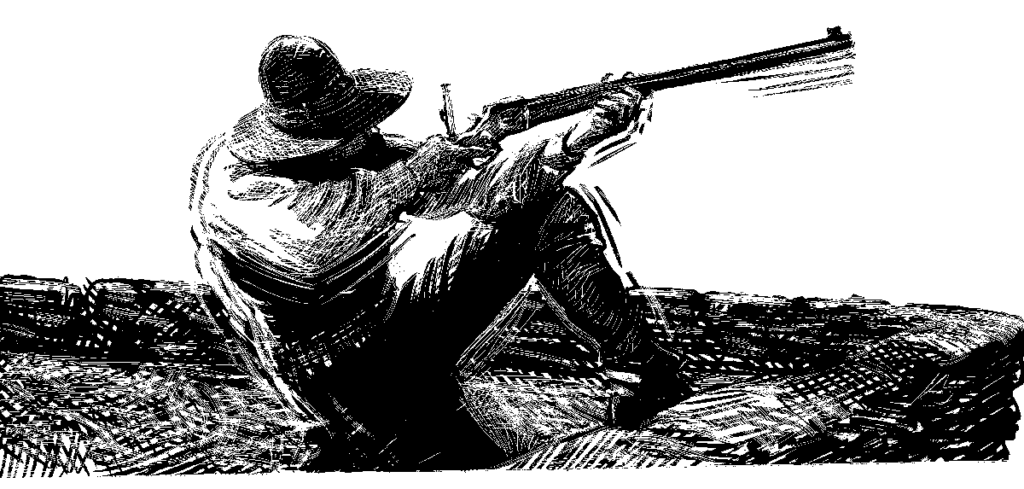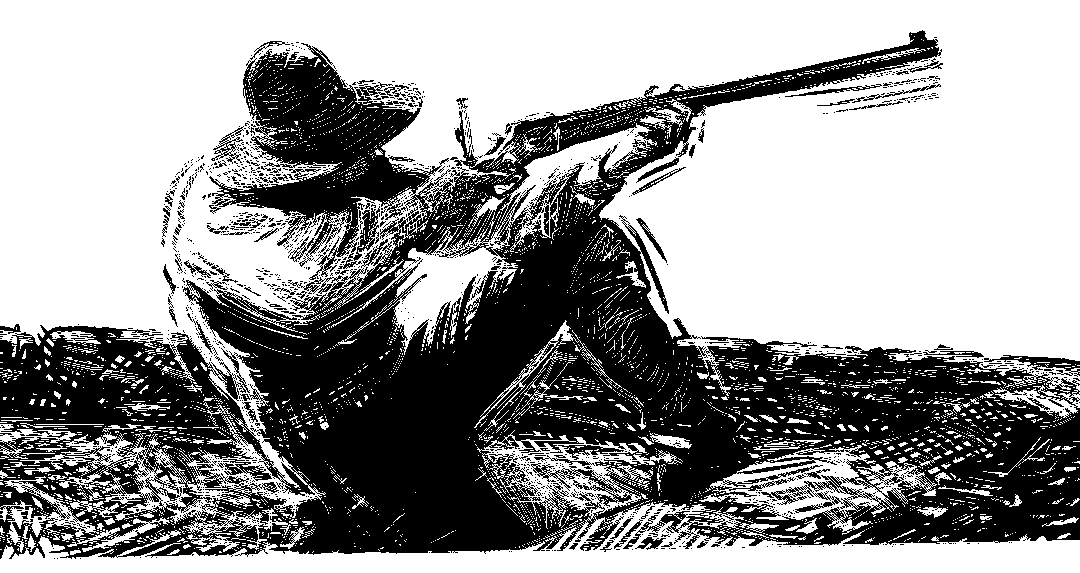
The 1867 Treaty of Medicine Lodge reserved much of the Texas Panhandle as hunting lands for the Indians, however white buffalo hunters ignored the treaty, thus incurring the wrath of the tribes.
At dawn on the morning of June 27th, 1874 several hundred Comanche, Kiowa, Cheyenne warriors led by Quanah Parker and Lone Wolf attacked a semi-permanent hunting camp occupied by 28 men and one woman. Among the buffalo hunters in the group was 20-year-old Bat Masterson and a marksman of some renown named Billy Dixon.
Although outnumbered the hunters were packing high-powered Sharps .50 caliber rifles and the thick adobe walls were impervious to the arrows and lower caliber rifles.
Decades later, Quanah would recount what happened at Adobe Walls. “The Plains Indians were following the advice of a powerful medicine man named White Eagle, who claimed to have the power of raising the dead. White Eagle had promised a great victory, assuring the warriors that the white man’s bullets would fall to the ground, unable to harm them.”
On the morning of the third day of the battle a group of more than a dozen warriors gathered on a high mesa about a mile from the post. White Eagle punctuated the heights of his oratory by raising his staff and shouting, “Today, the victory is ours!” At that very moment, according to Quanah Parker, White Eagle said, “I stop the bullets in gun. Bullets would not penetrate shirts.
Meanwhile down at Adobe Walls, Billy Dixon was taking aim. He was using a Sharps Big Fifty, a single-shot with an octagonal, 34-inch barrel, firing a .50, 600-grain bullet driven by 125 grains of black powder. He dialed in his adjustable rear peep sight and got ready. He was aiming for the group of riders on the bluff, rather than any one particular target, and in later years he would call it a lucky shot, though he also noted, “I was not without confidence in my marksmanship.”
A warrior named Ton-han-kah fell off his horse. It was a full 4.1 seconds later when the warriors heard the distant roar of the Sharps rifle that had fired the shot. That’s when Billy Dixon had his name carved forever in western history.
The shot Dixon fired from his “Big Fifty” Sharps knocked a warrior off his horse nearly a mile away. It was later measured at 1,538 yards. For the remainder of his life Billy modestly claimed his “shot of the century” was just plain luck.






